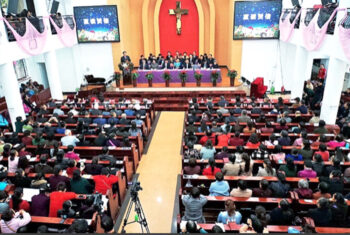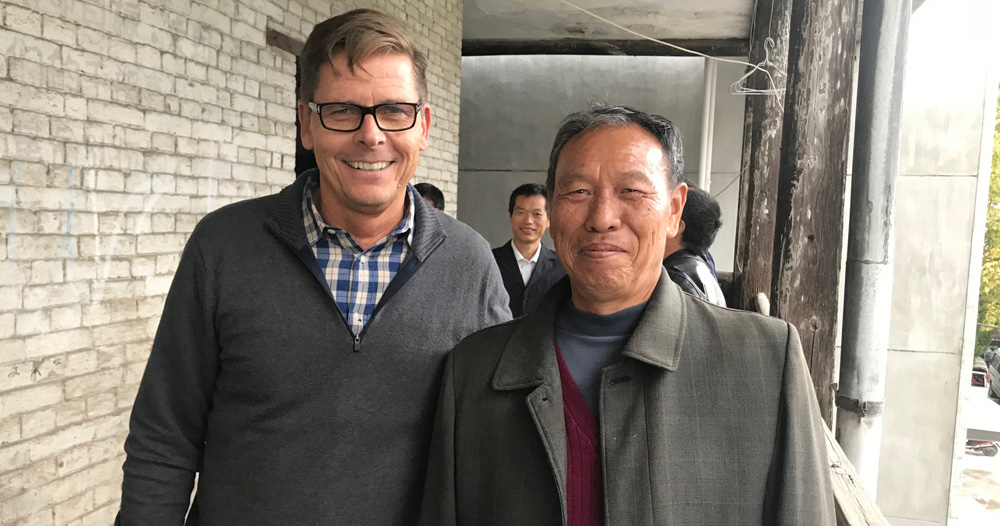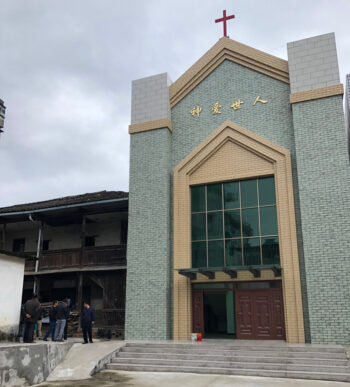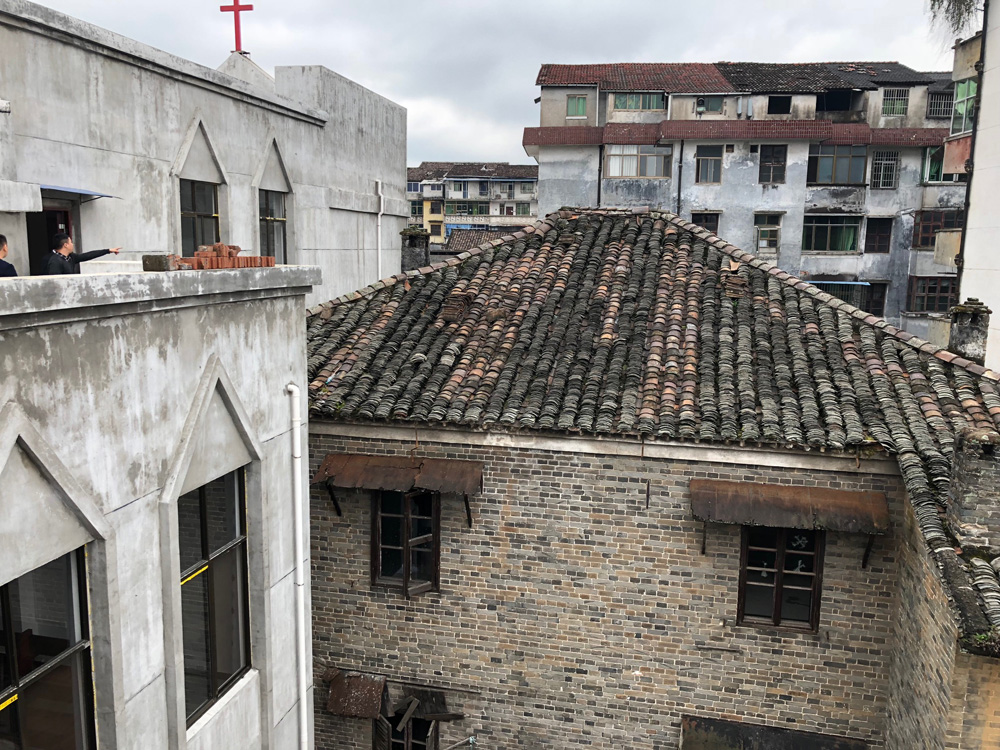By Mark Ellis –

Erik Burklin is a third generation missionary with a heart for China. His grandparents worked with China Inland Mission (now OMF) from 1925 until they were forced by the government to leave in 1950. His father, Werner, continued working with the registered church when that became possible in the early 80’s, and Erik has maintained the legacy.
He just returned from China after celebrating the 30th anniversary of the Shaanxi Bible school in Xian province. Communist party officials were present for all the activities.
“That’s the mystery of it all,” says Burklin, president of China Partner. “They are cracking down in one place, but here they were honored guests who made remarks to the student body.”
There were about 2,000 attendees at the event – including students that graduated over the last 30 years. “The Christians did not feel intimidated or change the programming. They prayed and worshiped together and there was a skit about Jesus being the only one who can save from hell. It was very evangelical,” Burklin notes.

One official at the celebration was from the United Front, which is part of the Communist Party. “The United Front recently took over the reins of the Religious Affairs Bureau, which oversees all religions. That’s the biggest shift that’s taken place. Even the Religious Affairs people don’t know what that means yet.”
In mid-August, over 100 Christian churches in Wenzhou and Zhejiang Province received a notice from the government prohibiting children younger than 18 from entering churches and barring them from involvement in any religious activities. The crackdown aimed at young people infuriated many registered church leaders.
The Shaanxi Bible School is considered the foremost training center affiliated with the registered church in the province. They are building a new facility that will be completed in two years. The school offers a one-year program for lay leaders and a four-year, college-level comprehensive seminary program. Each year, they graduate about 80 to 100 students.
“With the registered church, there is more freedom. The house church is more restricted as to what they can and cannot do. But what is always encouraging for us is that many registered leaders are friends with house church leaders. In many cases they try to help each other. It shows the true church working together in harmony.”
While some in the U.S. distrust the registered church, there is more of a sense of togetherness between the house church and registered church in China, Burklin observes. One pastor with the registered church told Burklin he was thankful they are going through the crackdown so they can identify with their house church brothers.
Most of the pastors Burklin encountered were surprisingly optimistic about the changes taking place. “They know it’s a communist regime, but they keep going on, preaching on Sunday, ministering to the sick, and doing baptisms.”
In the city where the celebration took place, there were 300 baptisms last year. “There is new birth and transformation among the Chinese people and the government is reacting to that nervously,” he notes.
On his recent trip, Burklin also visited the original mission station where his grandparents lived in Nanfeng, Jiangxi province, which now has protected status as a historical site. Next door, a large new church facility has been constructed with a cross prominently displayed on top.

No one has ever asked Burklin to change his training or teaching. “All registered bible schools and seminaries have a pretty straight up Bible curriculum. They teach Old and New Testament, Homiletics, church history, systematic theology,” he says.
“When I bring up a Bible verse, the students have usually memorized it. They know much of the Bible by heart.”
The school does not escape the notice of government officials and they get involved in the training. “If you’re going to be a senior pastor in China, there are government officials who tell them what they have to abide by. Those are the realities of being a pastor in China. It is not so much indoctrination.”

Many in the younger generation don’t remember the Cultural Revolution of the 60s and 70s. “To them, this is what the government does, their parents survived, so this is nothing new. They keep going and don’t feel intimidated.”
One pastor told Burklin, “The Roman church was being persecuted. We are honored we are being persecuted. We must be doing something right.”
To learn more about China Partner, go here




Glory be to Jesus.
He is still building His Church, no matter what they do…
Jesus is Lord
Comments are closed.